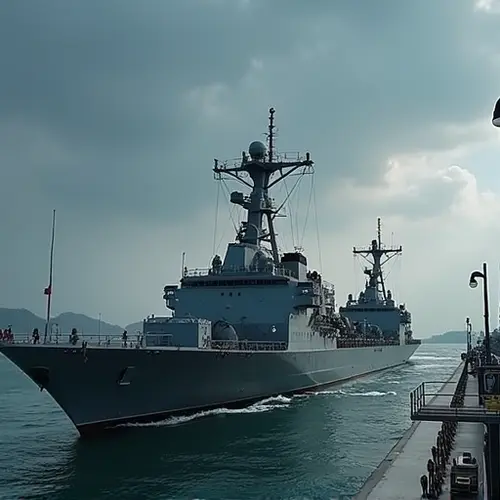
How Economic Sanctions Are Reshaping Global Trade Routes
Economic sanctions have long been a tool for nations to exert pressure on others, but their impact on global trade routes has become increasingly significant in recent years. As countries and companies navigate the complexities of sanctions and tariffs, new trade corridors are emerging, reshaping the global economic landscape.
The Rise of Alternative Trade Routes
Sanctions imposed by Western nations, particularly on Russia and Iran, have forced these countries to seek alternative trade partners and routes. For instance, Russia has pivoted towards China, with bilateral trade reaching a record $237 billion in 2023. This shift has led to the development of new supply chains, bypassing traditional Western-dominated routes.
The Role of "Shadow Fleets"
One of the most notable adaptations is the rise of "shadow fleets"—vessels operating outside Western sanctions regimes. These fleets, estimated at over 500 ships, facilitate the transport of sanctioned goods like crude oil. China has become a key destination for such illicit trade, importing over 97 million metric tons of sanctioned oil between 2017 and 2023.
Challenges for Enforcement
Despite efforts to enforce sanctions, circumvention networks have proven resilient. Countries like China and India have become critical hubs for rerouting goods, making it difficult for sanctions to achieve their intended goals. The complexity of these networks demands coordinated international efforts to close loopholes.
Long-Term Economic Shifts
The restructuring of trade routes is not just a temporary adjustment but a long-term transformation. Russia’s economy, for example, has become increasingly militarized, with defense industries now central to its GDP. This shift underscores the need for sustained economic pressure to prevent future aggression.
Conclusion
The global trade landscape is undergoing a profound transformation due to economic sanctions. While these measures aim to curb undesirable behavior, they also highlight the need for adaptive strategies to address evolving trade dynamics. The international community must remain vigilant to ensure sanctions remain effective in an increasingly interconnected world.

 Nederlands
Nederlands
 English
English
 Deutsch
Deutsch
 Français
Français
 Español
Español
 Português
Português